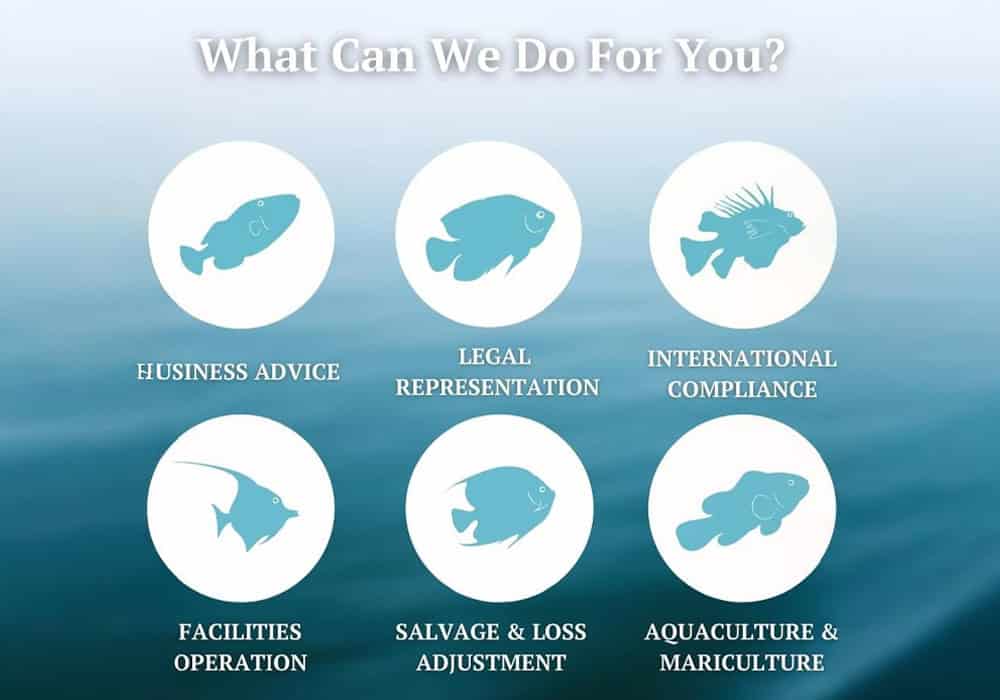
In the seafood industry, contracts form the backbone of every business transaction. Whether you’re sourcing product, entering a joint venture, exporting goods, or hiring staff, contracts protect your interests and create clear expectations. For women leading seafood enterprises—especially in a traditionally male-dominated space—understanding the legal and commercial aspects of contracts is essential for success.
This article unpacks the most important contract considerations for female business owners and operators in the seafood sector. It also highlights where professional legal advice can help prevent disputes, reduce risk, and support growth.
Why Contracts Matter in Seafood Businesses
Contracts are not just pieces of paper—they’re the foundation of trust, protection, and accountability. A well-drafted contract will:
- Clearly set out each party’s roles and responsibilities
- Define timelines, payment terms, delivery conditions, and dispute processes.
- Help enforce your rights if something goes wrong.
- Reduce misunderstandings and build strong business relationships.
Too often, seafood operators rely on verbal agreements or informal emails, which can lead to confusion, lost revenue, or lengthy disputes if things go sour.
Types of Seafood Contracts You May Encounter
In the seafood industry, you may need contracts for:
- Supplier agreements for raw product or packaging
- Catch-sharing or quota-leasing arrangements.
- Processing and cold storage services
- Transport, freight, and logistics.
- Domestic or international sales contracts
- Joint venture or co-operative agreements
- Employee or subcontractor arrangements
- Aquaculture lease or license agreements
- Marketing and distribution services
Each of these contract types comes with unique risks and obligations. It’s critical to tailor them to your business needs—not just copy someone else’s.
Key Contract Clauses to Understand
Here are some important contract terms every business leader should understand:
- Payment terms
-
- When you’ll be paid or need to pay others
- Penalties for late payments or non-payment
- Delivery and risk
- Who is responsible for the goods at each stage?
- What happens if there’s a delay or damage in transit?
- Product quality and standards
- What standards must be met (e.g., freshness, certification)?
- Who is responsible if the product is rejected?
- Duration and renewal
- Is the contract ongoing or for a fixed term?
- Can it be renewed or extended?
- Termination
- When can either party walk away?
- Are there penalties for ending the contract early?
- Dispute resolution
- How will disagreements be handled—mediation, arbitration, court?
- Which law applies if one party is overseas?
Legal Risks to Watch Out For
Not all contracts are created equal. Poorly drafted or one-sided agreements can leave your business exposed. Common problems include:
- Vague or missing terms
- Ambiguous pricing or delivery schedules
- Unfair penalty clauses
- No clear process for dealing with rejected product.
- No protection for intellectual property or brand use
- Boilerplate terms that don’t reflect your actual business model.
If you’re entering into a contract with a larger buyer or supplier, you may be handed a standard agreement that doesn’t favour you. Don’t assume it’s non-negotiable—many terms can be revised if you ask.
The Gender Gap in Contract Negotiation
Research shows women in business often face extra challenges in contract negotiations, including:
- Being talked over or dismissed in meetings.
- Lack of access to legal advice or contract training
- Pressure to accept unfavourable terms to “keep the deal”.
- Hesitation to challenge standard terms or seek clarification.
This makes it even more important for female leaders to feel empowered, informed, and supported when reviewing or negotiating contracts.
Practical Tips for Reviewing Contracts
Here’s how you can protect your business when dealing with contracts:
- Never sign a contract you don’t understand.
- Ask questions—no clause is too small or silly.
- Keep all contracts in writing, even if you trust the other party.
- Use clear, plain language wherever possible.
- Keep copies of signed documents and related emails.
- Review contracts regularly, especially before renewal.
- Get professional legal advice before entering high value deals.
Case Study: Avoiding a Costly Export Dispute
A female-led seafood exporting business in Western Australia entered a contract with a distributor in Singapore. The deal was signed quickly with minimal review. When the first shipment was rejected due to temperature variations, the distributor refused payment. The contract had no clause for dispute resolution, and the exporter couldn’t enforce her rights overseas.
After engaging legal help post-dispute, she revamped her export contracts with clear quality clauses, payment security mechanisms, and international dispute terms. She now negotiates from a place of confidence, not urgency.
How Aquarius Lawyers Can Help
Aquarius Lawyers understands the unique challenges women face in seafood leadership and legal negotiation. We work alongside you to ensure your contracts are clear, fair, and built for your success.
Here’s how we can assist:
- Contract drafting and review.
-
- Tailored agreements for supply, processing, distribution, or services
- Plain-English contracts that reflect your business needs.
- Negotiation support
- Help you understand and negotiate better terms.
- Back you up in supplier or buyer conversations
- Export and international contract advice.
- Ensure your contracts comply with foreign laws and protect your rights.
- Draft clauses covering shipping terms, quality standards, and payment security.
- Partnership and joint venture agreements
- Set out clear terms for collaboration with other operators.
- Avoid misunderstandings around profit-sharing, decision-making, or liabilities.
- Employment and contractor agreements
- Compliant terms for staff, casuals, or contractors
- Clear roles, responsibilities, and safety requirements
- Ongoing legal support
- Fixed-fee or retainer options for regular contract advice
- Support during contract breaches or disputes.
Checklist: Are Your Contracts in Good Shape?
Use this quick checklist to assess your contract readiness:
- Do you have written contracts for key business relationships?
- Are your payment terms and delivery responsibilities clearly outlined?
- Do your contracts reflect current business practices and risks?
- Are your export agreements compliant with destination market laws?
- Have you reviewed your contracts in the last 12 months?
- Do you understand your rights and obligations under each contract?
- Have you had any of your contracts reviewed by a lawyer?
If you ticked “no” to any of the above, it’s time to take action.
Empowering Women in the Seafood Sector
Legal empowerment is business empowerment. By understanding your contracts and seeking advice when needed, you take control of your growth, reduce risk, and strengthen your leadership position in the seafood industry.
Women in seafood bring innovation, sustainability, and resilience to the table. Having strong contracts behind you ensures that your contributions are respected, rewarded, and protected.
Let Aquarius Lawyers Be Your Legal Partner
Aquarius Lawyers is proud to support women in aquaculture, fisheries, and seafood enterprises. Whether you’re reviewing a supplier agreement, negotiating an export deal, or setting up a new venture, we’re here to make sure the law works for you—not against you.
Get in touch today for a confidential consultation.
📧 marketing@aquariuslawyers.com.au
🌐 www.aquariuslawyers.com.au
📞 02 88583233



